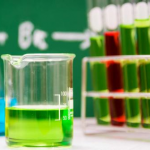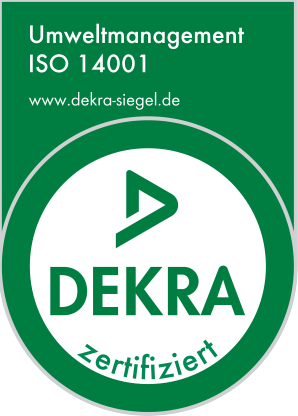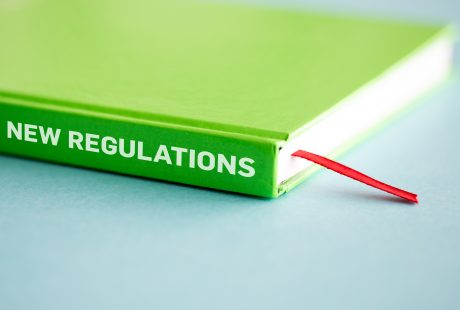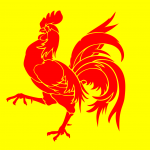We use cookies to personalize content and advertisements, to offer social media functions and to analyze access to our website.
You can revoke the given consent at any time. You can find further information in our Privacy Policy.
Jul 2017
 The transition period for Industrial Monitoring and Control Instruments will end: Beginning with July 22, 2017, Industrial Monitoring and Control Instruments will fall in the scope of EU Directive 2011/65/EU, and will have to fulfil the substance restrictions for lead, mercury, hexavalent chromium, polybrominated biphenyls (PBB), polybrominated diphenyl ethers (PBDE) and cadmium. Further requirements relate to the assessment and declaration of conformity, CE marking and documentation obligations.
The transition period for Industrial Monitoring and Control Instruments will end: Beginning with July 22, 2017, Industrial Monitoring and Control Instruments will fall in the scope of EU Directive 2011/65/EU, and will have to fulfil the substance restrictions for lead, mercury, hexavalent chromium, polybrominated biphenyls (PBB), polybrominated diphenyl ethers (PBDE) and cadmium. Further requirements relate to the assessment and declaration of conformity, CE marking and documentation obligations.
Jul 2017
 The European Chemical Agency (ECHA) has added the substance PFHxS to the Candidate List of substances of very high concern (SVHCs). Entries for bisphenol A and four phthalates have been updated in order to include endocrine-disrupting properties for human health. The Candidate List was published on July 10, 2017 by ECHA and now contains 174 substances.
The European Chemical Agency (ECHA) has added the substance PFHxS to the Candidate List of substances of very high concern (SVHCs). Entries for bisphenol A and four phthalates have been updated in order to include endocrine-disrupting properties for human health. The Candidate List was published on July 10, 2017 by ECHA and now contains 174 substances.
Perfluorohexane-1-sulfonic acid and its salts (PFHxS) belongs to the group of per- and polyfluoroalkyl substances (PFASs). PFHxS was identified as a very persistent and very bioaccumulative substance according to REACH Article 57 e. The substance may be used as a plasticiser, lubricant, surfactant, wetting agent, corrosion inhibitor and in fire-fighting foams. More information under https://echa.europa.eu/-/one-new-substance-added-to-the-candidate-list
Jul 2017
On 06, Jul 2017 | In News @en | By Alisa Maier
 1cc
1cc  GmbH was certified by the auditing and certification company, Dekra Certification GmbH, in the scopes of quality and environment. For its successful implementation of the quality and environmental management systems, 1cc was granted the ISO 9001:2015 and ISO 14001:2015 certificates.
GmbH was certified by the auditing and certification company, Dekra Certification GmbH, in the scopes of quality and environment. For its successful implementation of the quality and environmental management systems, 1cc was granted the ISO 9001:2015 and ISO 14001:2015 certificates.
The ISO 9001:2015 and ISO 14001:2015 certificates are chartered for the next three years, after which 1cc will undergo renewed auditing. The firm is committed to persevere in optimising its management and environmental processes. In this context, the management appointed a quality management representative, responsible for keeping abreast of the processes and coordinating developments with management.
As a well-established consulting company, 1cc GmbH strives to attain and provide the highest quality of consulting and diverse operational services for the satisfaction of its customers and values the opportunity it had in cooperating with Dekra Certification GmbH as a professional and ambitious service Provider:
Jul 2017
The United Arab Emirates (UAE) have recently enacted a legislation for the “Restriction of Hazardous Substances” (RoHS) in electrical and electronic equipment (EEE): Cabinet Decision No. 10/2017 was published in the Official Gazette on April 27, 2017, and came into force on the following day. The Emirates Authority for Standardization & Metrology (ESMA) is the national regulatory authority.
The law is analogous to the EU RoHS Directive 2011/65/EU – it stipulates for example the same product scope, the same substance restrictions, including the four phthalates, and identical thresholds.
However, the UAE RoHS legislation differs from EU RoHS Directive in three main aspects:
• Differences in transition periods
• Conformity assessment procedure which requires e. g. certification at ESMA
• Products already placed on the market have to comply with the requirements after the transition period
For more information, please contact us under contact@1cc-consulting.com
May 2017
On 30, May 2017 | In Conflict Minerals, News @en | By Alisa Maier
The new Conflict Minerals Regulation 2017/82/EU laying down supply chain due diligence obligations for importers; it was published in the European Union Official Gazette on May 19, 2017. Importers of conflict minerals from conflict-affected and high-risk areas have supply chain due diligence obligations. The affected conflict minerals include tin, tantalum and tungsten, their ores, and Gold.
This Regulation is designed to provide transparency and certainty as regards the supply practices of importers, and of smelters and refiners sourcing from conflict-affected and high-risk areas. The minerals and metals covered by the new Regulation are listed in Annex I with the related volume thresholds. The Commission is empowered to adopt delegated acts to amend the existing thresholds listed in Annex I every three years after January,1 2021.
The Regulation shall enter into force on July, 9 2017 and will then apply directly in every EU Member State. However, a transitional period until January, 1 2021 applies to all importers for the due diligence.
May 2017
On 23, May 2017 | In News @en | By Alisa Maier
 The new Law on the Further Development of Separate Collection of Recyclable Waste (Packaging Waste Law) was adopted on May 12, 2017 by the German Federal Assembly (Bundesrat). The law will enter into force on January 1, 2019 and will replace the currently applicable Packaging Ordinance.
The new Law on the Further Development of Separate Collection of Recyclable Waste (Packaging Waste Law) was adopted on May 12, 2017 by the German Federal Assembly (Bundesrat). The law will enter into force on January 1, 2019 and will replace the currently applicable Packaging Ordinance.
The newly introduced registration and reporting obligation with the so called „Zentrale Stelle“ (centralized authority) constitutes the most important change. The „Zentrale Stelle“ shall facilitate the enforcement of the Packaging Waste Law and will be set-up as a foundation entrusted with public authority.
The already existing Clearing House (“Gemeinsame Stelle”), which requires registration of packaging take-back systems, will continue to be responsible for the coordination between the take-back systems operating on the market, for example clearing between several systems.
Further changes refer to the obligation of market actors to join a packaging take-back system for secondary packaging which will end up with consumers as well as increased recycling quotas.
May 2017
The Law amending the German Electrical and Electronic Equipment Act (ElektroG) passed the German Bundesrat and was published in the Federal Law Gazette. The new law enters into force on June 1, 2017.
Due to the fact that not all retailers fulfil their take-back obligation, this default can now be assessed as an administrative offense and be punished with a fine of up to 100,000 Euros: This can apply if a device is not taken back, if the take-back was done in a non-correct or incomplete way or not in a timely manner.
The law also defines the term of “household quantity” according to § 17 in detail by the fact that the obligation to take back a product is limited to five pieces of WEEE per device type (0:1 take-back obligation for small waste equipment).
May 2017
 After several years of delay, the Wallonia region of Belgium published its national implementation law of EU WEEE Directive 2012/19/EU. The respective Decree of March 9, 2017 was officially published on April 26, 2017. It entered into force 10 days after its publication.
After several years of delay, the Wallonia region of Belgium published its national implementation law of EU WEEE Directive 2012/19/EU. The respective Decree of March 9, 2017 was officially published on April 26, 2017. It entered into force 10 days after its publication.
The national harmonization was due to be fulfilled by February 14, 2014. In April of this year, the EU Commission requested Belgium to enact the EU WEEE legislation.
The Decree of March 9, 2017 of Wallonia Government amends the Decree of September 23, 2010, establishing take back obligation for some types of waste. The latter amended Decree of March 10, 2005, which defined the sectorial conditions for the facilities of waste collection and sorting, of pre-treatment and of the treatment of WEEE.
May 2017
On 19, May 2017 | In Events | By Alisa Maier
This year’s Chemspec Europe – a leading conference for the chemical industry – will take place May 31 and June 1, 2017 in Munich. 1cc will participate at the conference at its own booth (R145). We are looking forward to meeting you!
1cc consultant Nadiia Kaiun will give the presentation “Update on Toxic Substances Control Act in USA” on June 1, from 15:00 to 15:30 (Regulatory Services Zone).
The presentation will provide an overview of the key elements of TSCA Modernization Act and actions required for manufactures and exporters of chemicals to the USA. Furthermore, upcoming deadlines and certain aspects of organizing compliance will be discussed.
Further Information: www.chemspecevents.com/europe
May 2017
On 17, May 2017 | In News @en | By Alisa Maier
 In Sweden, the Law on Tax on Certain Chemicals in Electronics (SFS 2016: 1067) entered into force on April 1, 2017. It requires liable parties to pay a tax on certain chemicals in covered electronic and electrical equipment.
In Sweden, the Law on Tax on Certain Chemicals in Electronics (SFS 2016: 1067) entered into force on April 1, 2017. It requires liable parties to pay a tax on certain chemicals in covered electronic and electrical equipment.
The product scope will be gradually expanded to cover a wider range of consumer products as well as additional hazardous substances. Liability is assigned to products with certain CN numbers which are listed in § 3 of the Chemical Tax Law.
The payable tax rate is calculated by CN number and weight in kilogram. However, according to section 6 of the Law, tax reductions between 50 or 90 % might be possible:
In case the product does not contain phosphorous compounds in a concentration of more than 0,1 % by weight of a homogeneous material, and/or reactive bromine or chlorine compounds in a concentration of more than 0,1 % by weight of a homogeneous material in a populated circuit board or a plastic part that weights more than 25 grams.